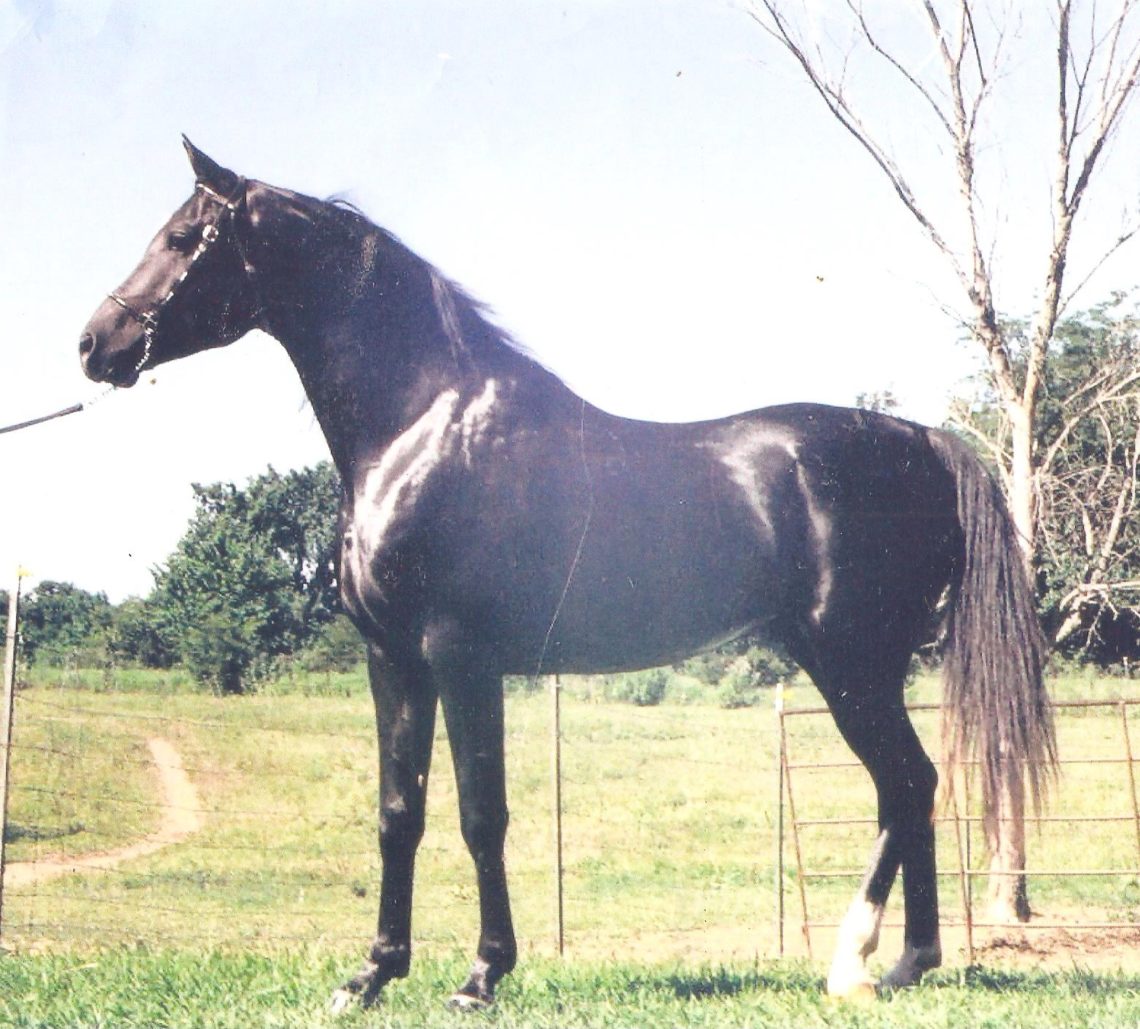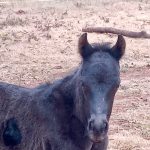
Our Arabians
Bahiya Mizan
About Bahiya Mizan
Bahiya Mizan is an Arabian mare (female horse) with some interesting ancestors not often found these days.
She is an Early American Foundation Arabian. This means all her bloodlines come from horses imported into the USA before 1944 – a truly American Arabian. There are fewer than 1000 Early American Foundation Arabians.
She is also a Malabar Arabian. Malabars are a modern strain bred from old bloodlines for rare black color, good size, strong bodies and above-average calm intelligent minds with strong empathy for humans. Malabar breeders consider these to be throwbacks to the original “live in your tent” Arabians from history. There are only about 200 high-percent Malabars remaining and only a few active breeding farms.
SF Obeds Dusk
About SF Obed’s Dusk
After losing our young stallion in a fire in the fall of 2021, our breeding program was on hold. With the arrival of SF Obeds Dusk , we have resumed breeding with an exciting tweak to our focus.
Dusk has Pulque and Bask in his pedigree and is heavily linebred to Witez II. Witez II is the star of the book And Miles To Go, which tells the story of his rescue from the nazis during the war. Witez II came from the reknowned Polish Arabian breeding program. Polish Arabians were required to prove themselves with a series of phyical and mental tests before being used for breeding, and the bloodlines are known for their speed, stamina, good minds and strength. Dusk was a champion competitive reiner (a type of horse competition) in his youth in California.
EW Khusuf ibn Obed'sDusk
About EW Khusuf ibn Obed’sDusk
Welcome to the world little one!
2024 colt out of Bahiya Mizan by SF Obed’s Dusk
We hope that Khusuf has inherited the best from both of his unique parents and are excited to watch him develop.
Interestingly, it was narrated from Abu Qatadah Al-Ansari in an authentic hadith that the Prophet Muhammad (Peace be upon him) said:
“The best of horses are those that are deep black, with a blaze on the
forehead, white marks on the legs and white nose and upper lip, and with
no whiteness on the right foreleg. If not deep-black, then
reddish-brown, with these markings.”
Another hadith narrated by Abu Huraira says: Allah’s Messenger the Prophet Muhammad (Peace be upon him) said, “Keeping horses may be a source of reward to some (man), a shelter to another (i.e. means of earning one’s living), or a burden to a third…Horses are a shelter from poverty to the second person who keeps horses for earning his living so as not to ask others, and at the same time he gives God’s right (from the wealth he earns through using them in trading etc.,) and does not overburden them. He who keeps horses just out of pride and for showing off…his horses will be a source of sins to him.”
In yet another hadith Utbah heard the Messenger of Allaah (Peace be upon him) say: Do not cut the forelocks, manes or tails of a horse , for their tails are their means of driving flies, their manes provide them with warmth and blessing is tied to their forelocks.”
In contrast, to the best of my knowledge, there are no authentic hadith to support the myth of the Prophet’s thumbprint, the Prophet’s hand mark or the names of the Prophet’s horses.
Orientalism in the 19th and early 20th centuries led to some interesting and very persistent views about Arabian horses. Author Edward W. Said defined Orientalism as the acceptance in the West of “the basic distinction between East and West as the starting point for elaborate theories, epics, novels, social descriptions, and political accounts concerning the Orient, its people, customs, ‘mind,’ destiny and so on.” According to Said, Orientalism dates from the period of European Enlightenment and colonization of the Arab World. Orientalism provided a rationalization for European colonialism based on a self-serving history in which “the West” constructed “the East” as extremely different and inferior, and therefore in need of Western intervention or “rescue”. During the Orientalist time period, the Arabian horse became romanticized and some would argue the entire concept of purity and bloodlines also traces back to this period. At the tail end of the Orientalist period eugenics and the industrial revolution both occurred, with their influence on breeding practices and official breed registries. To this day, there is heated debate about concepts such as purity and registrations and even the preferred appearance of Arabian horses. For more on the debates and concepts please see our Research page.
All controversy aside, we value our Arabians for their practical qualities. Arabians are unusual. You have to meet them to fully appreciate just how much. They are conscious beings, intelligent, thoughtful, caring. Their empathy is very strong. Our Arabians are strongly built, yet elegant and nimble, with good heavy bone, above-average height compared to the typical Arabian, and versatile minds and bodies. Arabians are wonderful family horses that can excel in a variety of sports as well as working on the farm.
We welcome visitors. You may come meet them for yourself and experience their unique empathy. Whether you are able to travel to Barakah Heritage Farm, home of East West, and meet them in person, or must participate from a distance, you can be part of their journey, part of the circle of life and new births and the return of a precious bloodline.

Miss Doc Alena has her own American Quarter Horse page.








